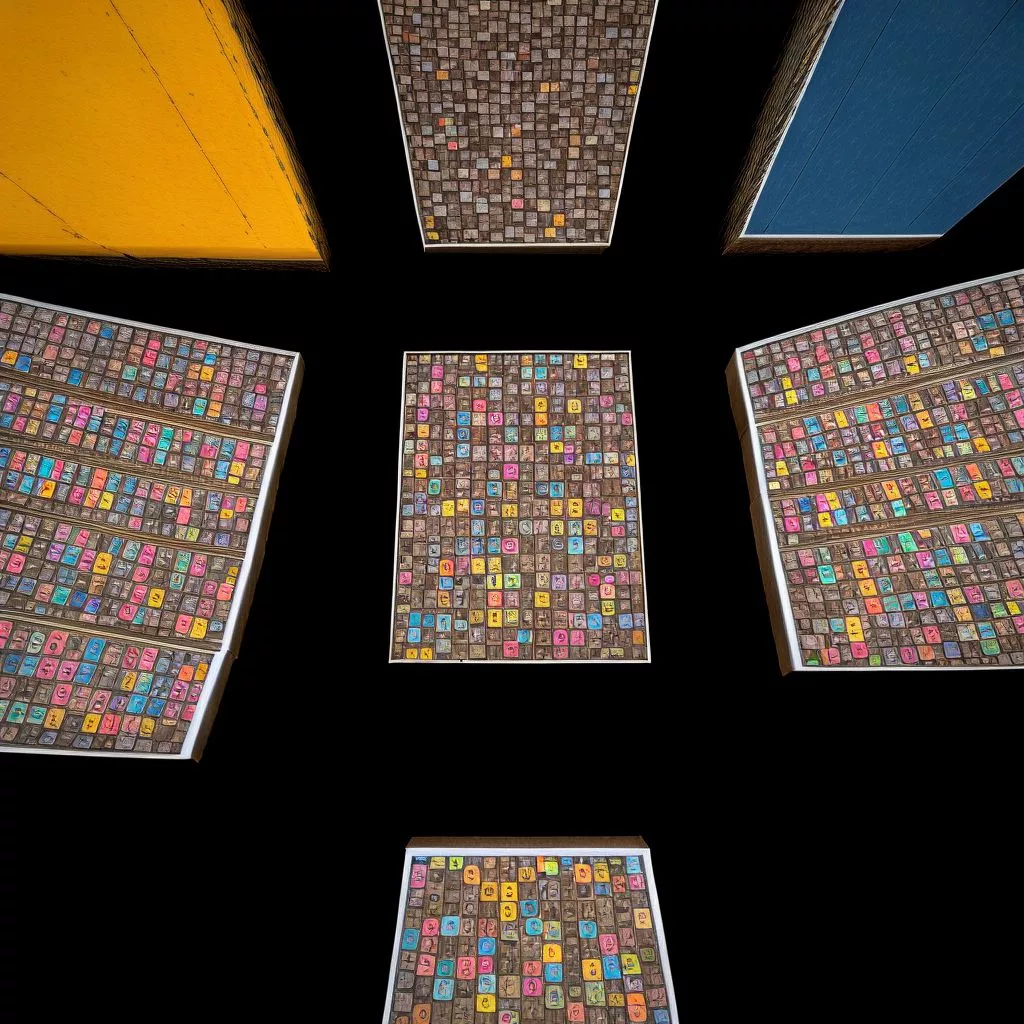In the colorful BoKaap neighborhood of Cape Town, a remarkable 150yearold well has been discovered during construction work, revealing a treasure trove of history. This ancient well connects the past to the present, showcasing the area’s rich cultural heritage linked to the Cape Malay community. The City of Cape Town is dedicated to preserving this significant find while developing the BoKaap Market, ensuring that progress respects the stories and memories woven into the neighborhood. This discovery not only adds depth to BoKaap’s narrative but also emphasizes the importance of honoring history as the city grows.
Cape Town is getting ready for some important water maintenance that might cause temporary disruptions. Residents are encouraged to store water in clean containers and use less water for things like showers and washing. The Blackheath Water Treatment Plant will be undergoing annual maintenance, which means there will be less drinking water available for a short time. It’s important for everyone to work together to save water and stay informed about any changes. By taking these simple steps, the community can help ensure that everyone has enough water during this time.
The Trump administration’s costcutting efforts, led by the Department of Government Efficiency (DOGE), are shrouded in mystery, raising alarms about honesty in government. With major cuts to global aid, especially in health and education, trust in the administration is fading. Many worry that the figures reported as savings are misleading, and the lack of detailed information on contracts only adds to the confusion. As legal battles unfold, the need for clear communication and accountability becomes even more urgent, reminding us that open governance is crucial for public confidence.
The South African Social Security Agency (SASSA) is a vital lifeline for many families, offering essential financial help like childcare grants, support for the elderly, and disability benefits. Despite facing challenges such as fraud, SASSA is dedicated to making sure help gets to those who need it most. With new online tools and improved card systems, SASSA is working hard to modernize its services and fight corruption. As it continues to support South Africa’s vulnerable citizens, SASSA’s commitment shines through, bringing hope and aid to countless lives.
Cape Town’s Traffic Fine Roadshow was a vibrant event where 3,500 drivers came together to tackle their unpaid traffic fines. In just five days, they resolved over 10,000 fines and made important steps towards being responsible citizens. This initiative not only helped clear nearly R4 million in fines but also strengthened the bond between the city and its residents, reminding everyone of the importance of following the rules for safer roads. Through stories like Thandi’s, who found support at the roadshow, it became clear that when communities unite, they can create real change and a brighter future for everyone.
South Africa is making big changes to its marriage laws, aiming for fairness and inclusion. The new Marriage Bill wants to raise the legal marriage age from 18 to 21 and officially recognize samesex marriages. This is part of a plan to bring together different marriage rules into one law that respects the country’s rich culture. Many people are discussing whether 21 is a better age for marriage, as they believe it gives young adults more time to grow and prepare. These changes show South Africa’s commitment to equality and adapting to modern values while honoring its diverse traditions.
The fight against HIV/AIDS is facing tough times as important funding has been cut, especially in South Africa. This has caused many crucial services to close, affecting vulnerable groups like sex workers and the LGBTQ community. Activists, led by Zackie Achmat, are rallying to restore mobile clinics and lower drug prices to help those in need. Despite the challenges, many believe that with enough support, we can still end AIDS and ensure everyone gets the care they deserve. The struggle continues, highlighting the power of unity and hope in the face of adversity.
South Africa is at an important crossroads as it searches for a new ambassador to the United States after Ebrahim Rasool’s sudden expulsion. The top candidates are Tony Leon, known for his diplomatic skills and experience, and Lindiwe Sisulu, praised for her commitment to social justice. Leon has a strong background in politics and international relations, while Sisulu brings a fresh perspective focused on equity and fairness. As President Ramaphosa weighs his decision, the outcome will greatly impact the future of U.S.South Africa relations, which are crucial for trade and cooperation.
Ebrahim Rasool’s return to South Africa is a powerful story of strength and hope. Greeted by a joyful crowd at Cape Town International Airport, he showed no regrets despite being expelled from the U.S. for criticizing a controversial political movement. His experience highlights the tension between South Africa and the U.S., showing how the country stands firm in its values, even when faced with challenges. Rasool’s journey reflects South Africa’s ongoing commitment to justice and equality, reminding everyone of its rich history and determination to overcome obstacles on the global stage.
President Cyril Ramaphosa’s leadership in South Africa is a tricky puzzle. He struggles to control his party, the African National Congress (ANC), which is filled with different groups and opinions. This confusion spills over into his government, making it hard to create clear policies, especially on energy. As he tries to balance many voices in a coalition government, he faces huge challenges like high unemployment and economic inequality. Ramaphosa’s cautious style of leadership sometimes makes it seem like he’s unsure, which adds to the chaos around him.
The relationship between South Africa and the United States is shaky right now, stirred up by bold comments from figures like Donald Trump and Elon Musk. Trump has called South Africa a “dangerous mess,” focusing on crime and racial issues, while Musk chimed in with his own criticisms, particularly about government policies he sees as unfair. Reactions in South Africa are mixed; some think these remarks exaggerate real problems, while others see a reflection of genuine issues. This situation highlights not just the challenges faced by South Africa, but also how personal experiences can shape political views, making it clear that the country’s story is rich and complex.
Elon Musk, South Africa, and the Hazards of Misinformation: Navigating a Modern Social Media Storm
Elon Musk’s recent comments about South Africa’s Economic Freedom Fighters (EFF) have stirred up a huge debate about misinformation and racial issues. He claimed that the EFF is promoting “white genocide,” a statement that caused a storm on social media and drew attention from people all over the world. While some support Musk’s view, many others see it as dangerous exaggeration and misinformation. This situation shows how social media can both connect and divide people, making it crucial for everyone to think carefully about the information they share. As discussions continue, it’s clear we need to seek the truth in this complex digital age.
South Africa is in a tough spot with its driver’s licence system. An old printing machine, breaking down often, can’t keep up with the growing number of renewals. This has caused long waits and frustration for many drivers. The government is caught in a messy situation, facing criticism over how they chose a new printer, which is now under investigation for not following the rules. As citizens like Nomvula struggle to get their licences on time, everyone is watching to see how the Department of Transport will fix this problem.
On March 21, 2023, a fierce debate erupted between Elon Musk and Julius Malema during a rally in South Africa. Musk criticized Malema for singing a controversial song that many believe promotes violence against white people, while Malema defended his policies aimed at correcting land injustices. Their clash highlights the deep racial tensions and differing views on South Africa’s future, with Malema calling for change and Musk expressing frustration over being blocked from doing business in the country. This public feud reflects the ongoing struggle over race, history, and equality in a nation still healing from its past.
In the Western Cape, prisons have changed their meal plans, cutting down on meat and fish to save money and offer more plantbased foods like beans and soya. This new menu is meant to help the government save over R200 million each year and support programs to help inmates learn new skills. However, many prisoners are unhappy, calling the food bland and insufficient, with some even choosing to skip meals. While the Department of Correctional Services insists the meals meet basic needs, advocates worry about the health impacts of poor nutrition. This situation highlights a bigger debate about how to treat inmates fairly while balancing costs and promoting rehabilitation.
Cape Town is buzzing with bubble tea spots, each more delightful than the last! Susu Bubble Tea feels like a party with its colorful decor and fun drinks. Royal Tea offers a fancy twist with unique flavors like cheese tea, while Booba Beautea is a pink paradise perfect for Instagram photos. For a taste of something different, 4Tea blends flavors with healthier options, and TeAwesome lets you create your own drink. Don’t forget Bobalicious, where tasty teas meet sweet treats! Each café adds its own touch to the city’s lively bubble tea scene, making Cape Town a mustvisit for bubble tea lovers.
















